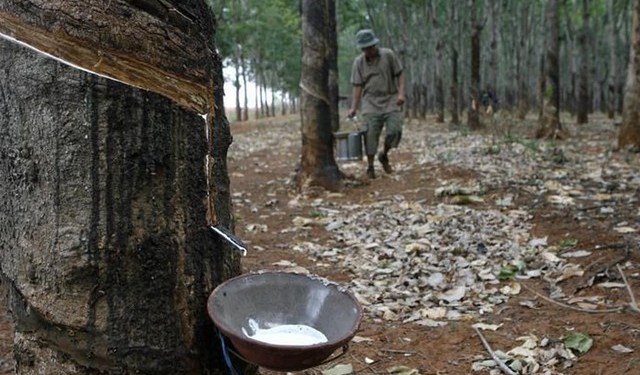Our goal is to help rubber farmers, not to buy their product. The most cost-efficient way is to give them the subsidy portion (about B15-Bt20 per kilo) and let them sell their crop to the highest bidders in the world market.
This will save taxpayers about Bt30 per kilo, or Bt3 billion in total, which equates to two-thirds of the budget approved to aid rubber farmers, plus the B979 million to hire private parties to process, store and manage the crop. That adds up to a total of almost Bt4 billion saved and as much aid to farmers as they would get under the current plan.
Also, we should focus efforts on the poorest of the poor, who need help the most. Buying rubber from farmers means that those with the smallest landholdings will get the least. There’s a cap of Bt10 per kilo on up to 15 rai, so each recipient will get, at most, B3,000 in subsidies – which isn’t enough to do something lasting.
Instead, 80 per cent of the subsidy budget should go to the poorest 20 per cent of rubber farmers. Each should get enough to be self-sustaining within two years, whether in the form of cash, training, equipment or other aid, after which he would not be eligible for further assistance.
Let’s help farmers help themselves, sustainably and at minimum cost to the taxpayer.




























